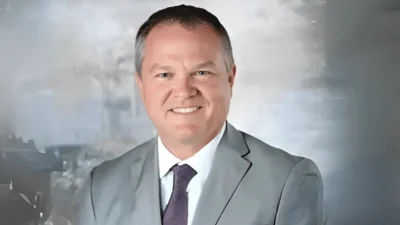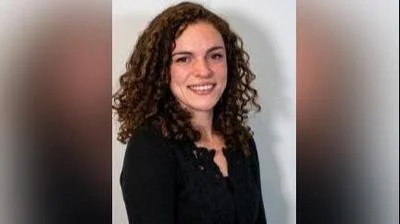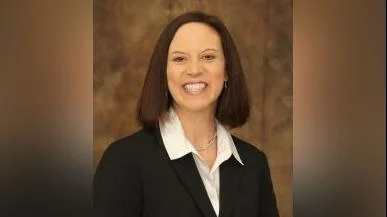Harrisburg City Council met Jan. 17.
Here is the minutes provided by the council:
The Harrisburg City Council met on January 17, 2019 at 6:00 pm in the Council Room, City Hall, Harrisburg, Illinois.
Mayor John McPeek presided over the meeting with Commissioners Natalie Miller, Beth Montfort, Richard Harper and Mike Weirauch answering roll call.
Pastor Bobby Gentry from the River of Life United Pentecostal Church led the group in prayer and the Pledge of Allegiance.
Mayor McPeek announced:
• City Hall will be closed on Monday, January 21 in observance of Martin Luther King Day
• Mt. Pleasant Baptist Church is sponsoring a breakfast on that day from 7:00 am to 10:30 am, with a program starting at 10:45 am
• McDonald’s will have their grand opening on January 24 starting at 5:00 am
Commissioner Harper wanted to add line item identification to two Consent Agenda items:
• $25,635.23 out of Professional fees in Sewer
• $2,461.20 out of Drainage in Sewer
Commissioner Harper made a motion to approve, with the above identifications noted, the following items under the Consent Agenda:
1. Minutes of the Regular Meeting of January 3, 2019.
2. Accept from the Saline County Circuit Clerk Court Fees in the amount of $2,380.85.
3. Bill from Brown & Roberts for STP preliminary engineering report in the amount of $25,635.23 to be taken out of Professional fees in Sewer.
4. Bill from Brown & Roberts for Pankey Branch Detention Basin IEMA Phase II application in the amount of $2,461.20 to be taken out of Drainage in Sewer.
5. Bill from Bob Barnett Ready-Mix for concrete in the amount of $549.00 to be taken out of MFT.
6. Bill from Bob Barnett Ready-Mix for concrete in the amount of $549.00 to be taken out of MFT.
Commissioner Miller seconded. By roll call vote, all voted yes. Motion carried.
Attorney Bittle stated he did not need Executive Session for the Property Acquisition Agenda item. He stated that Council had discussed accepting the deed on the old junior high building in lieu of foreclosure but he had also wanted Council to be aware of the considerable cost that came with accepting the deed. Commissioner Harper moved that Clerk Wofford file the deed. Commissioner Miller seconded. By roll call vote, all voted yes. Motion carried. Mayor McPeek stated the paperwork for the Brownfield grant would be filed by the end of the month deadline.
Attorney Todd Bittle presented the Ordinance to sell the property at 118 South Jackson which Council had accepted the bid on at the January 3 meeting. Commissioner Harper moved to pass Ordinance 1768 an Ordinance Authorizing the Sale of Certain Surplus Real Estate Owned by the City of Harrisburg.
Commissioner Miller seconded. By roll call vote, all voted yes. Motion carried. Commissioner Montfort gave the video gaming figures for the year.
Commissioner Montfort stated she had asked for a cost estimate for the proposed shooting range the Police Department was requesting. The estimate was $6,122.00 which included materials, a shed and concrete. Commissioner Weirauch stated a good place for it would be out on City roundhouse property. He also thought, since it would be used by both Police and Fire, the cost could be paid out of Council Contingency. He stated there was already a two-sided berm out there. Commissioner Montfort stated she would put it on the next Agenda.
Commissioner Harper stated on August 3, 2017, the City directed Attorney Bittle to advertise for engineering firms to conduct a water supply feasibility for the City. He stated a committee was formed consisting of Mayor McPeek, Superintendent Kelly Hefner, Attorney Bittle and himself. The committee interviewed several firms and selected HMG Engineers for the study. He stated HMG had no connection with the City or Saline Valley Conservancy District or Rend Lake Conservancy District. He introduced Brian Buchheit with HMG Engineers and distributed copies of the report among the audience.
Buchheit stated he began with demographics including population and expectation of demand for normally a 20 year plan, but, because of the signed contract with Saline Valley, they had worked on a 40 year basis. He stated the City population had declined about 1⁄2% a year and a decline in water demand was partly because of leaks being fixed. The study had determined that a daily use of 900,000 gallons per day with a peak of 1.4 million gallons per day was a good plan.
The next consideration was alternatives that could provide that amount of water. The alternatives included Rend Lake water, develop a new surface water source, develop a new ground water source and the current source from Saline Valley.
After considering ground water sources and treatment costs of different water supply levels, the aquifer that Saline Valley uses, near the Ohio and Wabash River which also has a good quality of water with some treatment requirements, was determined to be the better choice.
The study, for the purpose of developing costs, looked at three wells east of Ridgway toward the Wabash, upstream with the confluence of the Ohio, as a potential area for development because of the potential of the highest yield which could create a sustainable water supply. But, the distance from the City also had to be taken into consideration. Buchheit referred to page 8 in the report which showed water main routing past Ridgway to a plant located possibly halfway to the City for treatment before delivery to the City. He state the projected cost would be upwards of $20 million.
Buchheit stated the second alternative was the surface water option which would be Harrisburg Lake and two flood impoundments, one of which would have to be developed. A treatment plant would be possibly be next to the current reservoirs. The cost of treating surface water and maintaining a long term sustainable supply did not make surface water a good alternative.
Bluchheit stated the third alternative of Rend Lake was a purchased water source like with Saline Valley. A tie on to the 24” main between Benton and Marion would be necessary along with a required storage and pump station and then a 14” main to Harrisburg. He stated their cost of water currently is a little less than Saline Valley but there would be $10 million in infrastructure.
Buchheit stated the study had reviewed the current situation with Saline Valley and referred to the chart on page 24 of the report showing the water rate versus the daily consumption. Buchheit stated the concern was the volatility of their rate increases over the last 15 years with future increases being a concern for the next 40 years.
Buchheit stated the heart of the matter was the cost evaluation which could vary based on actual costs when an alternative was chosen. He stated, however, he was comfortable with the following cost evaluations. He stated the capital cost for ground water was a little over $20 million, surface was almost $30 million, Rend Lake was $10 million and Saline Valley was zero. The next consideration was the operating cost for each 1,000 gallons which was $1.04 for ground, $1.44 for surface, 28¢ for Rend Lake and zero for Saline Valley. Buchheit stated labor and benefits cost would involve a Class B operator for the ground water alternative at a cost of $85,000.00 a year or a Class A operator for surface water plus three additional operators at a cost of $285,000.00 a year with no additional cost for the other alternatives.
Buchheit stated a 40 year projected cost was needed to compare to the Saline Valley contract. He stated
Saline Valley was planning on new wells which would have a debt service of about a dime per thousand. The study took into consideration debt service which is currently 1.84% over 20 years, annual inflation of operating costs was assumed to be 2% for energy, chemicals and OM&R and 2.5% labor and benefits. The purchase rate increase for Rend Lake and Saline Valley was assumed to be 2%. He stated looking at the comparisons showed about a $12 million savings in the ground water over Saline Valley which he stated was a major savings over 40 years.
However, Buchheit stated the IEPA has recently published disadvantage communities terms for which the City would quality and that means principal forgiveness of up to $1.5 million of an initial loan and a 1% loan rate over 30 years, rather than the usual 20 years. Using those criteria, the difference was $15 million savings for ground water over Saline Valley.
Buchheit wanted Council to understand these were projections based on assumptions. He stated in his world he needed to be able to make reasonable assumptions based on experience and engineering knowledge to come up with a projected cost. He stated the purpose of the study was to determine if there was an option worth pursuing that was more feasible than what is being done now. He stated in his opinion a ground water source could be an option for the City and does warrant further study. He stated the next step would be to start looking for property acquisitions and routing and easements which is a huge part of this type of project. He stated, if all of that falls in place, it becomes very simple. If it is difficult to obtain easements and they have to develop different routes, the numbers start to change. He stated there were a lot of things that could impact the numbers and that is why he looks for big gaps when he does studies. He stated the other thing he would do was to take his report, add to it and make it compliant with the EPA loan program to make it a basis to start a loan application and get on their list. He stated he would not start design until land acquisition work is done.
Commissioner Montfort asked if the cost of land and easements was part of the total and Buchheit stated they were as well as there being 15% construction contingencies built into the numbers.
Commissioner Weirauch asked Buchheit if he was aware the line would go through some of the best farm land in the state and was told that was known.
Audience member Tristin Monroe asked how deep the pipes would be and would they impact the use of the farm land. Buchheit stated typically they try to stay close by roads for maintenance and accessibility.
Commissioner Montfort clarified there would only be one pipe to Harrisburg and, if that busted, the City would be without water. Buchheit stated that was correct. But, he continued, that was why there is storage in town because most issues can be fixed before running out of water in storage.
Fire Chief John Gunning asked how big the feeder line was and would it affect his fire flow and pressure. Buchheit stated it was a 16” line and there should not be a problem with flow and pressure. Buchheit stated there would be well pumps and pumps at the plant that would help also. But, he stated, the flow for a fire would come from the storage tank, which is better, rather than putting pressure all through town.
Audience member Zack Gibbons asked if he had checked out the property by Ridgway and considered the Peabody mine and its possible impact. Buchheit stated he had driven the area but, because the scope of the study was still preliminary, he had not gone into any details like that and was only looking for accessibility.
Commissioner Harper stated in reviewing the spreadsheets he noticed that all showed that by year 21 the City’s consumption was less that Saline Valley’s required minimum. Buchheit stated that was based on the current population trend. Commissioner Weirauch pointed out that was hypothetical also. Buchheit agreed.
Commissioner Harper stated there would also be new supply lines which he believed should get rid of a lot of the water loss.
Audience member Danny Gibbs stated the feasibility study indicated it would cost 1.8 million dollars to drill three wells. However, he continued, when Saline Valley addressed Council several months ago, they had stated the cost would be $4 million for their well and that was why Saline Valley did their rate increase, which Council did not pass on to the public. Gibbs stated he was confused about why they did an increase when there shouldn’t be a $4 million dollar expense.
Gibbs asked what about the stability with an earthquake problem with ground water. He suggested that, because Kerr-McGee mine was going to have to have top soil from somewhere to cover the gob pile, there might be holes big enough for holding surface water and tie them into the water solution for the City. Buchheit stated that could cause some environmental concerns and water quality concerns which would make it difficult to get permitted as a water source. Chief Gunning expanded on the idea and explained that it would be possible to acquire top soil off site and truck it back in to cover the gob pile. Buchheit understood the concept but stated it didn’t change the fact that would mean treating surface water and all the costs of that. But, he stated it could be evaluated as a possibility.
Gibbs stated the reason Saline Valley was looking at a new well was because of contamination from Peabody Coal. He asked if Buchheit thought there could be any problem by digging at the Wabash because of fracking. Buchheit stated that was not a lot of info about fracking and its impact. However, he continued, he had not seen any regulatory guidance about fracking impacting ground water supplies but he liked being as close as possible to rivers for consistency in supply and water quality also.
Commissioner Harper moved to accept the report from HMG Engineers. Commissioner Miller seconded. By roll call vote, all voted yes. Motion carried.
Mayor McPeek thanked all the City employees for all they do. He stated he wanted to also thank Rick Brown for his insight and service to the City. He appreciated Brown giving him the idea of combining the City’s workforce under the management of one Superintendent and had decided to proceed with that since Brown had informed him that he would be retiring on May 1. Mayor McPeek moved to appoint Kelly Hefner as the Superintendent of Public Works effective January 18, 2019. Commissioner Miller seconded. By roll call vote, Commissioners Miller and Harper and Mayor McPeek voted yes. Commissioners Montfort and Weirauch voted no. Motion carried.
Commissioner Miller stated the same ordinance that instituted the one Superintendent of Public Works also allowed a Working Foreman position to be added. Commissioner Miller moved to appoint Danny Dunn as a Working Foreman for Street and Alley effective February 1, 2019 with a $1.00 increase in pay. Commissioner Harper seconded. By roll call vote, all voted yes. Motion carried.
Mayor McPeek moved the meeting be adjourned to Executive Session to review and approve the Executive Session Minutes from August 2, 2018 to December 6, 2018. Commissioners Harper seconded. By roll call vote, Commissioners Montfort, Harper and Weirauch and Mayor McPeek voted yes. Commissioner Miller voted no. Motion carried.
Adjourned: 6:55 pm. Reconvened: 7:04 pm.
Mayor John McPeek presided over the reconvened meeting with Commissioners Natalie Miller, Beth Montfort, Richard Harper and Mike Weirauch answering roll call.
Mayor McPeek moved the Executive Session Minutes from August 2, 2018 through December 6, 2018 be approved and the following minutes be opened:
• August 2, 2018
• November 15, 2018
Commissioner Weirauch seconded. By roll call vote, Commissioners Montfort, Harper and Weirauch and Mayor McPeek voted yes. Commissioner Miller voted no. Motion carried.
Commissioner Harper moved to adjourn. Commissioner Miller seconded. By roll call vote, all voted yes. Motion carried.
Adjourned: 7:05 pm.
https://docs.wixstatic.com/ugd/3acc7b_5594c687cf9d44c68e2ff890d25b31bd.pdf




 Alerts Sign-up
Alerts Sign-up